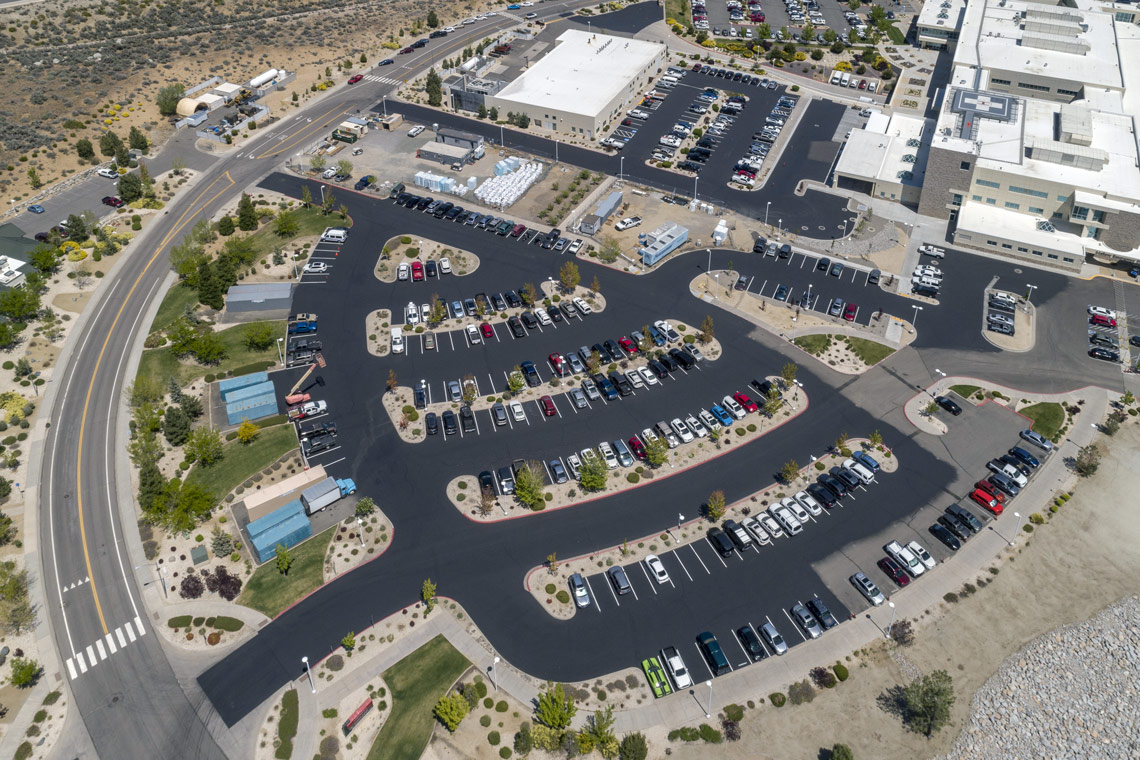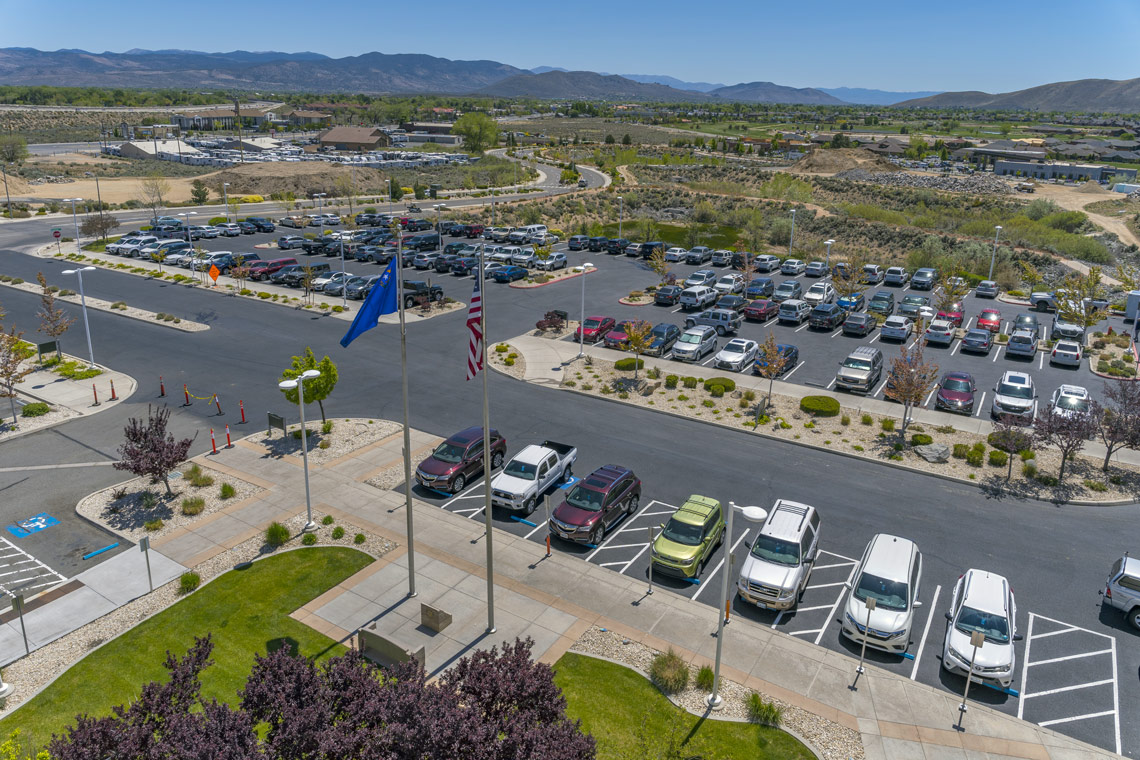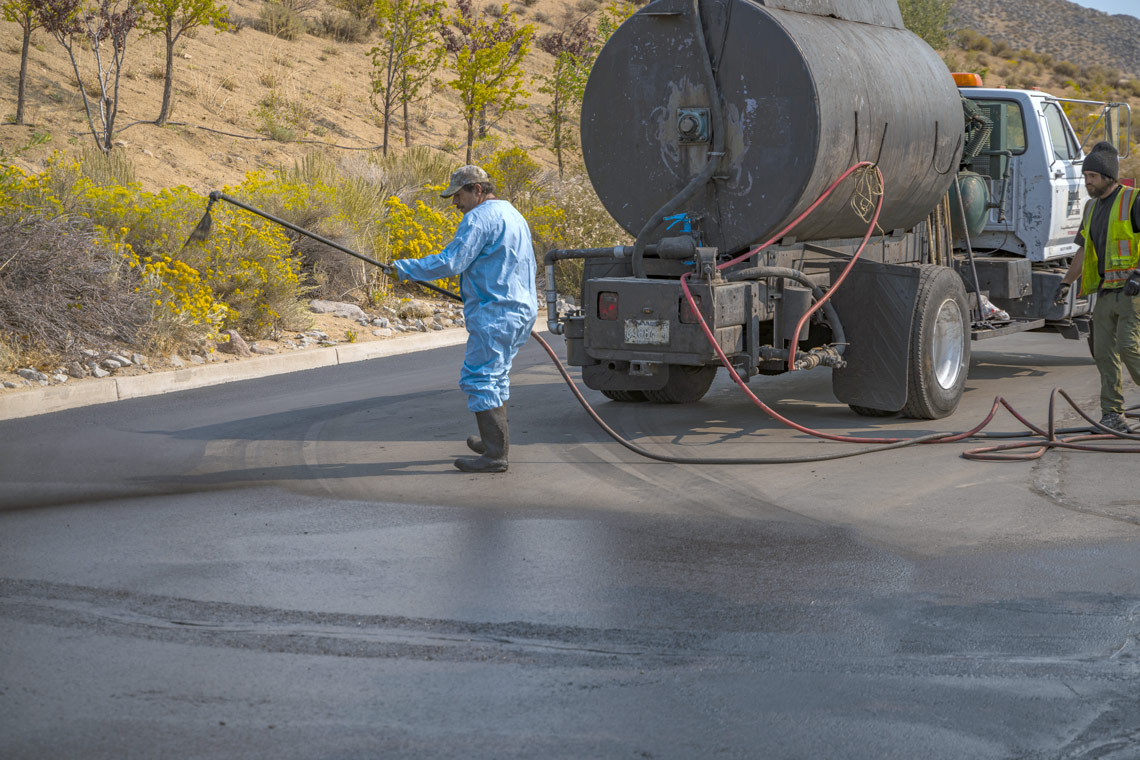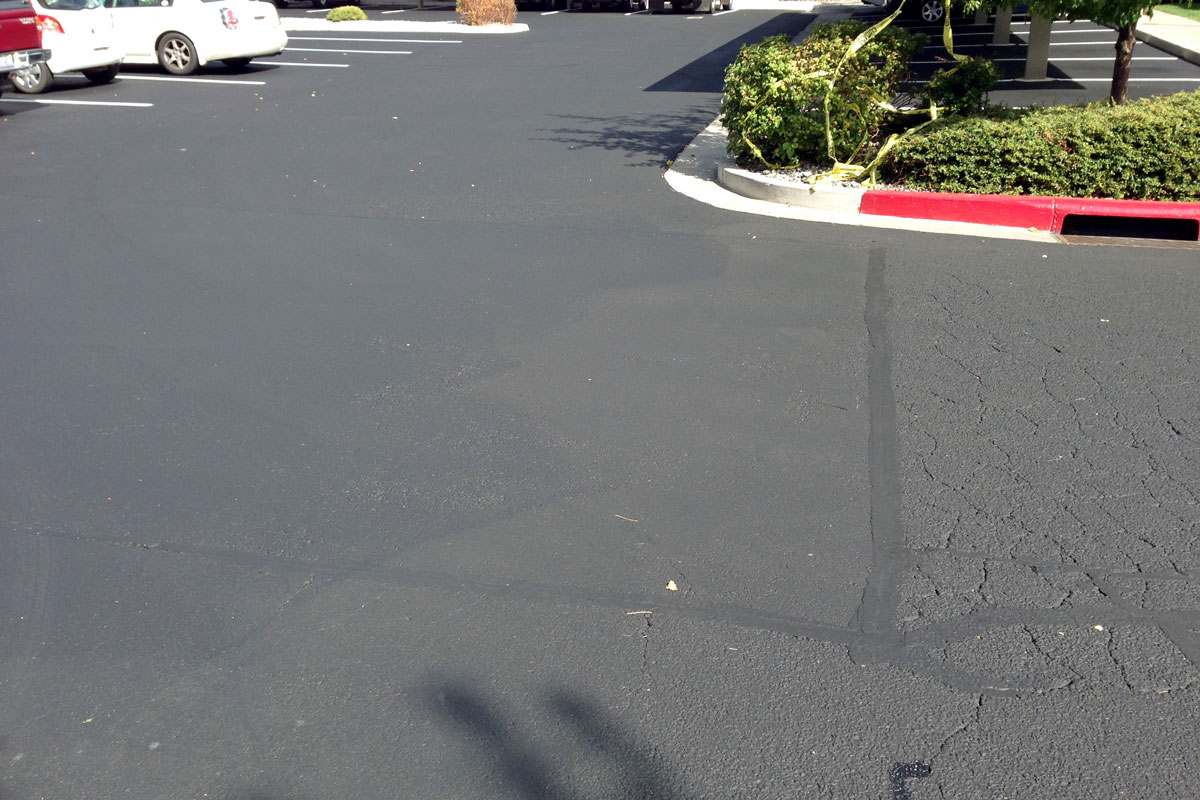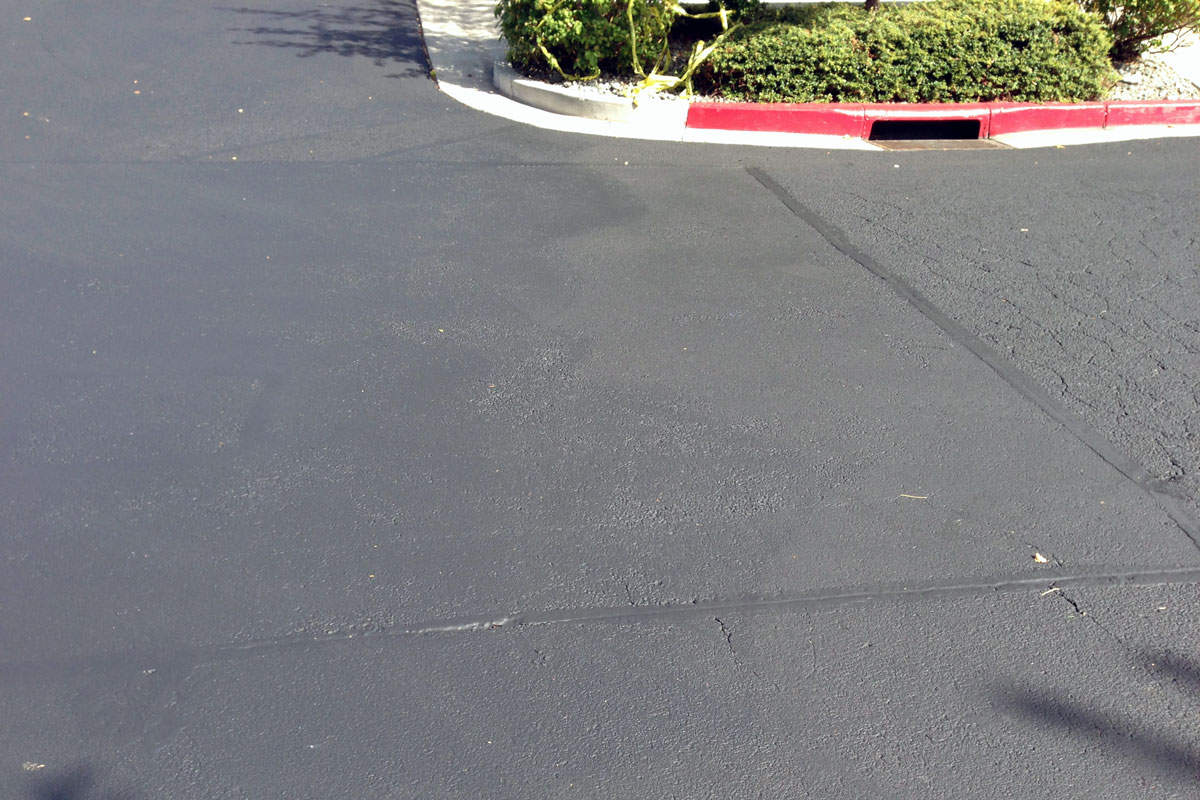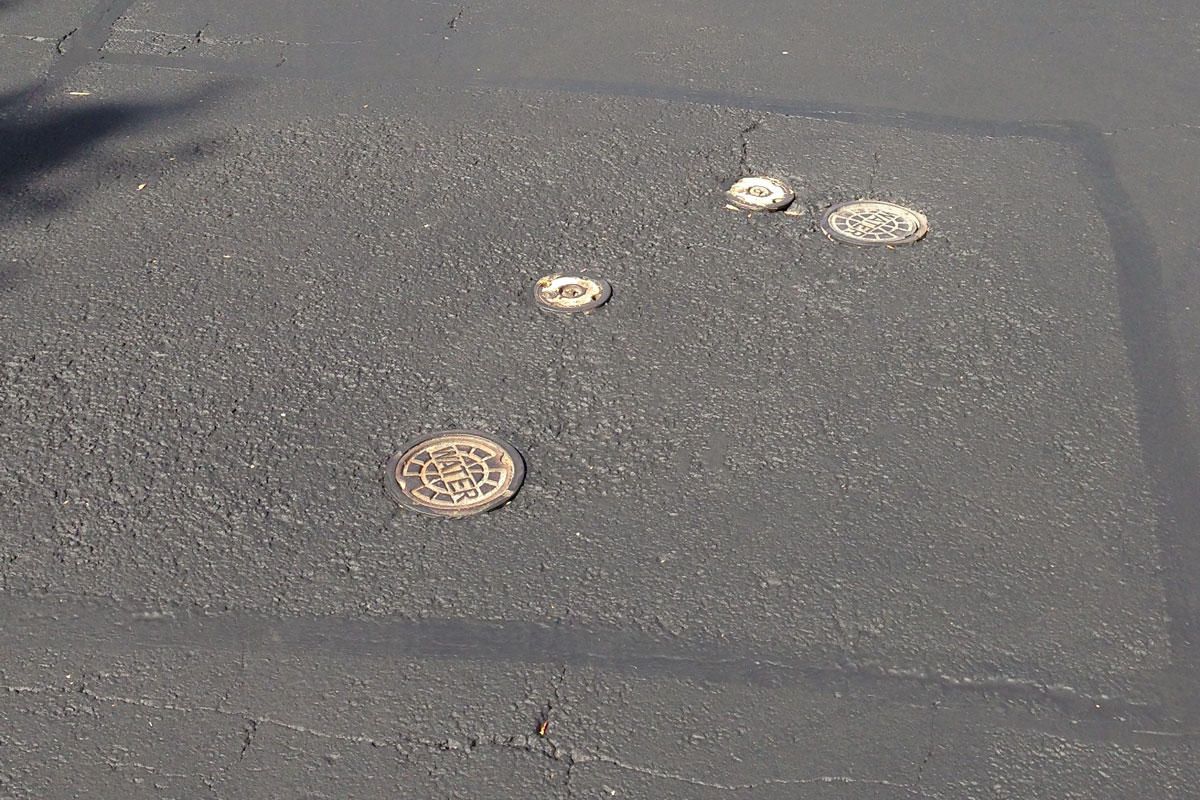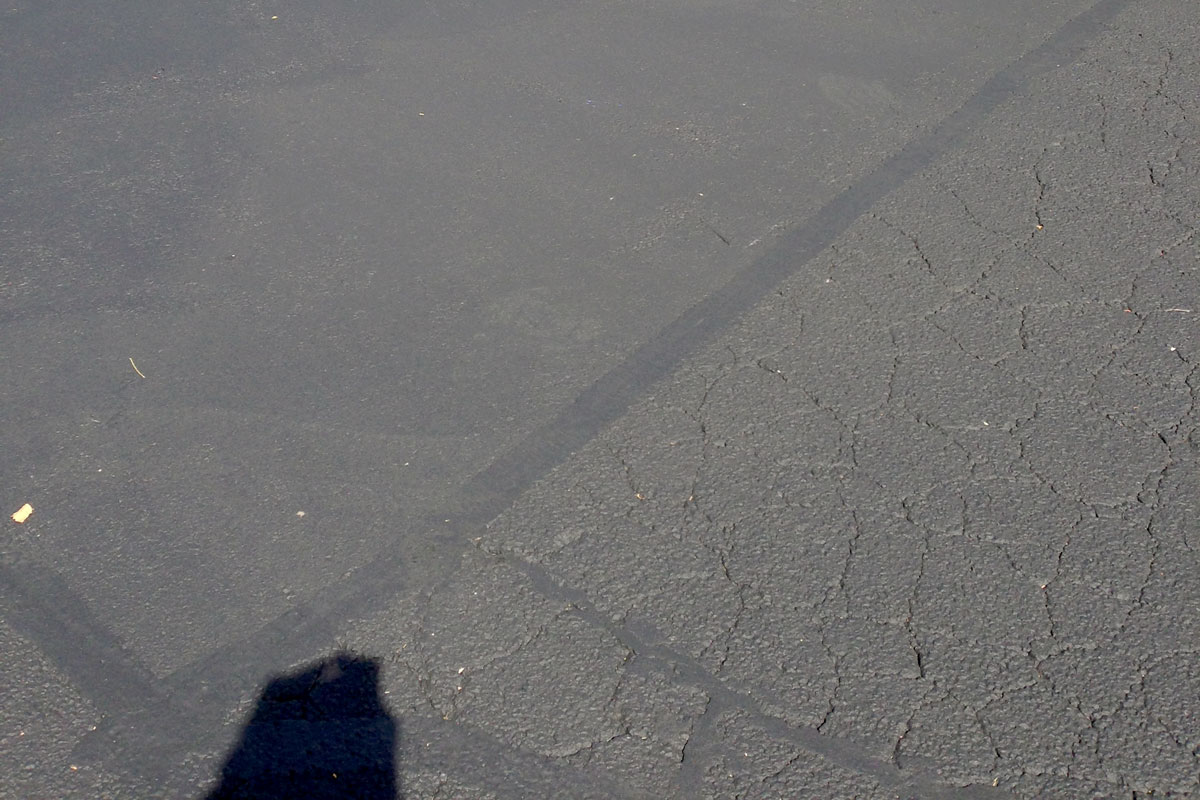Sealing
Why sealcoat?
Sealcoating seals the top of the asphalt to prevent water from penetrating the surface of the pavement. It protects the top layer of asphalt from oxidation and wear caused by exposure to the sun, air, petroleum-based products, etc. Pitch Black® also products a rich black long-lasting color.
When it comes to protecting your asphalt against deterioration, there is no greater value than a correctly mixed and applied sealcoat. Sealcoating substantially reduces maintenance costs and extends the life of asphalt pavements by as much as 300%. The cost of sealcoating is minor compared with the cost of pavement replacement. It is far less expensive to sealcoat a parking lot every few years using Pitch Black® than it is to replace the asphalt.
What is Pitch Black® Emulsion Sealcoat?
Pitch Black® is a custom rubberized asphalt emulsion blended with select minerals, polymers and chemicals to produce the finest product. Each additive was selected for its characteristics that ultimately produce a sealcoat with the deepest and longest lasting color, firmest body, and greatest durability. It is extraordinarily tough, flexible and water repellent. The co-efficient of expansion and contraction of Pitch Black® asphalt pavement sealer is identical to that of asphalt pavement and has a natural affinity for bonding to asphalt pavement. Performance in the field and lab testing confirm the superiority of Pitch Black® over competitive products in the marketplace.
Why use Pitch Black®?
- Creates a deep black color that lasts long-term – guaranteed blackest
- The rich black color of Pitch Black® enhances curb appeal.
- Substantially prolongs the life of your asphalt.
- Seals in asphalt oils / seals out the damage from ultraviolet rays and water.
- Fills in and smooths pavement surface voids.
- Creates a surface that’s easier to clean and maintain.
- Increases the flexibility of the asphalt.
- Fast & easy application (spray, squeegee or broom).
- Environmentally-friendly and non-toxic, safe (will NOT KILL fish, wildlife or foliage) or burn skin!
- Non-flammable and non-tracking.
- Provides a non-slip surface for walkways, tennis courts, playgrounds, parking lots & traffic areas.
- Proven formula that’s been used for over 25 years.
Sealcoat vs Slurry Seal
|
Sealcoats are generally coatings with very small aggregate size to none at all.
|
Slurry Seals generally deal with treatments that have larger aggregate sizes and provide some added structural strength. The most common is a Type 2 slurry with ¼” aggregate.
|
Sealcoat Product Types:
Asphalt Emulsion Sealcoat: An asphalt emulsion sealcoat is generally a mixture of asphalt emulsion (100% asphalt oil + water) and added minerals and fillers to assist in traction control, durability, hardness, and speed of curing. Can be applied via spray or squeegee.
We consider this category the star among the rest. Like all categories, there can be some bad products out there. We believe the well-made products in this categories are the most environmentally friendly and provide the longest life extension of the pavement possible.
Coal Tar Pavement Sealer: Coal Tar is a byproduct of coal from the process of make coke, the high-carbon product used in coal power plants. The coal tar byproduct is a solid that is dissolved into a liquid state using a highly flammable hydrocarbon, like Naptha. When sprayed on the pavement surface the hydrocarbon evaporates and leaves behind the coal-tar.
Fog Seal: A very light application of diluted asphalt emulsion to add a layer of new asphalt oil to the surface. Generally only lasts for 1 year.
Rejuvenator: A sprayed on coating that claims to penetrate the top layer of the asphalt and rejuvenate the asphaltenes and maltenes that make up the binder that hold the asphalt aggregates together. Some are made with hydrocarbon solvents while others can be organic solvents in nature.
These products are still being proven and our opinion questions how a solution can penetrate an impervious surface. We remain open to the possibility, but will await further proven research. We also prefer a coating with added minerals and fillers to act as a barrier between the pavement and the external environment that can break it down.
Slurry Seals:
Types 1-3 Slurry Seal: A mixture of asphalt emulsion, water, and aggregate. The main difference among the three is the size of aggregate. The most used is a Type 2 slurry which contains ¼ inch sized rock. Mostly used on roadways with unidirectional traffic and raveled parking lots.
Chip Seal: A Layer of asphalt emulsion is sprayed on a surface and then a single layer of washed aggregate is rolled into and bonded to the oil. Chip seals can come in different colors based the color of the rocks. Mostly used on rural roadways, industrial access roads, and long residential driveways due to its low cost and ease of installation.
Microsurfacing: Very similar a slurry seal, but contains smaller aggregates. Polymers and/or other chemical additives are introduced to expedite the rate of water evaporation to harden and cure the oil faster than a traditional slurry seal. Mostly used on roads and raveled parking lots. Generally selected for speed of re-opening and improved surface profile.
Cape Seal: A chip seal that is covered with a slurry or microsurface. Mostly used on roads or failed road areas where replacement budget is not available.
Some Of Our Works
